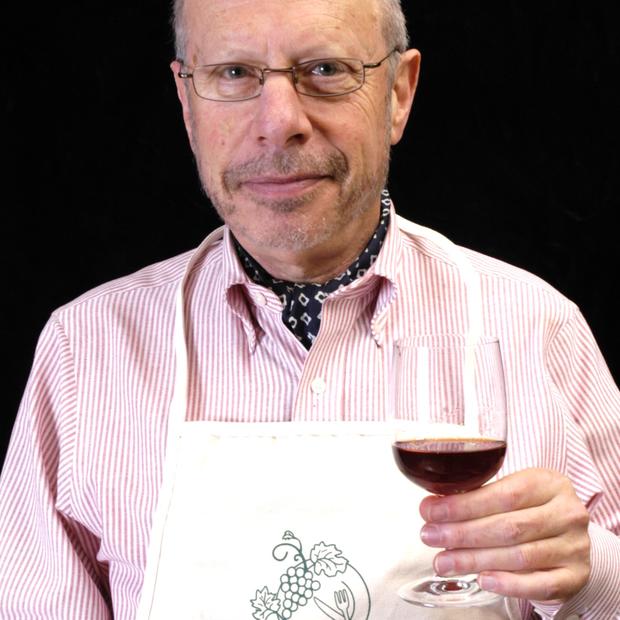A couple of observations before we begin. First, Mark Bittman has an article in Sunday's New York Times about cooking side-by-side with Ferran Adria, all chummy. Second, Adria has entered into some sort of global consulting deal with Pepsi. And why shouldn't he?
Which brings us to Lisa Abend's fascinating new book, The Sorcerer's Apprentices, which suggests that Ferran Adria is actually the spawn of Satan. But it could be argued that his megalomania (masquerading as playful creativity) has allowed him to convince critics around the world that his personal plaything (a 40-seat dinner house named el Bulli, on the northeast coast of Spain) is the best, most innovative restaurant in the world.
Let's back up. el Bulli (elBulli, in the restaurant's typography, named for a small statue of a bull) has been called the World's Best Restaurant every year since 2002 by guidebooks and by Restaurant Magazine, until dethroned in 2009 by a Danish restaurant, noma, whose chef, Rene Redzeki, is a former el Bulli stagiaire.
Abend, a terrific writer in the long tradition of Time-Life journalists, takes us through a season in the life of el Bulli's stagiaires, the platoons of unpaid interns in the bowels of the fine-dining world. They arrive on the Costa Brava from all over (Japan, Italy, Australia, North America, South America) with their backpacks, their not insubstantial resumes, and their dreams. A six-month internship, a stage at el Bulli, they are convinced, will provide the ticket to professional success — or the difference between a jump-start and a long, hard slog. It's hard enough to get a dinner reservation in the restaurant; the odds are even harder to get a spot in the kitchen.
But once they find themselves a place to live (the closest housing is in Roses, a fishing village 15 minutes away), these kids will be consigned to the most menial tasks. (Well, no, they're not "kids." They're young professional chefs at the start of their careers.) They start by cleaning the stones in el Bulli's parking lot (!), then get kitchen assignments like making yuba (the skin of boiled milk) used as a wrapper in several dishes. It is tedious and mind-numbing work, in a routine that never changes, but probably preferable to cleaning bunny ears or making frozen spheres of olive oil.
Abend follows a "class" of interns for a six-month season, introducing us to their hopes and dreams as well as their daily tribulations. We feel the frustrations felt by Luke, the Korean chef who doesn't speak Spanish; we share the dreams of Katie, whose goal is to open her own restaurant in North Carolina. We learn who's sleeping with whom. We admire the professionalism of Adria's lieutenants.
To understand the spell cast by Adria's kitchen wizardry, it helps to know what he's up to. "Molecular gastronomy" is only shorthand, and neither helpful nor accurate. "What we've done," the book quotes him as saying, "is create a new vocabulary, a new language for cooking." Examples: "Dragon cocktails" that make the drinker breathe smoke, "caviar" made from tiny spheres of olive oil. Hot turns into cold, sweet into savory, solid into liquid or air. "Adria's cooking plays with the diner's expectations, undermines established categories of taste and texture, and constantly, miraculously, continues to surprise."
So far, so good. Food as tricks, food as magic, dinner as theater. It's more like old-fashioned, medieval alchemy, turning dross into gold.
The chef is a perfectionist, or a mad scientist; critics praise him as a theologian, ambassador, and peace-maker bringing happiness to the world. But Adrià is almost a shadow presence in the book; he's seen tasting but not cooking, approving concoctions proposed by his chefs but not inventing them. He's a benign patriarch to his staff, "his family, but not his friends." But then, this isn't about him, it's about his interns, three dozen of them from 20 countries and speaking a dozen languages.
"Thirty percent of our clients will hate it," Adria exclaims of a new dish, a swirl of black sesame paste and transparent white yogurt, but he sends it out anyway because it because it meets his standard for creativity: "It's magic!" Creativity comes first, what the customer likes comes second. "We don't ask if a dish is good or bad. Our question is, does it make your hair stand up on end? Is it magic?" Abend's accounts of the stagiaires routine is no less hair-raising.
Here's the thing: those brave, gallant, patient, long-suffering stagiaires don't actually get to eat the food they make. they might as well be robots. Says Adria;: it would be too expensive. Adria's army of slave labor makes the "food" possible, and at no cost to el Bulli or to the diner. If el Bulli actually paid those slaves beyond their one meal a day, paid them even a minimum wage, it would have to charge at least $500 per head for dinner (instead of $350, wine additional).
Adria is getting out (while the getting's good). He's closing el Bulli (the restaurant) at the end of July and will reopen it is a "creativity center" in 2014. Meanwhile, he and his brother Albert have opened a couple of far more conventional spots in Barcelona, two hours down the coast.
The Sorcerer's Apprentices, Free Press (Simon & Schuster), 296 pages, $26


